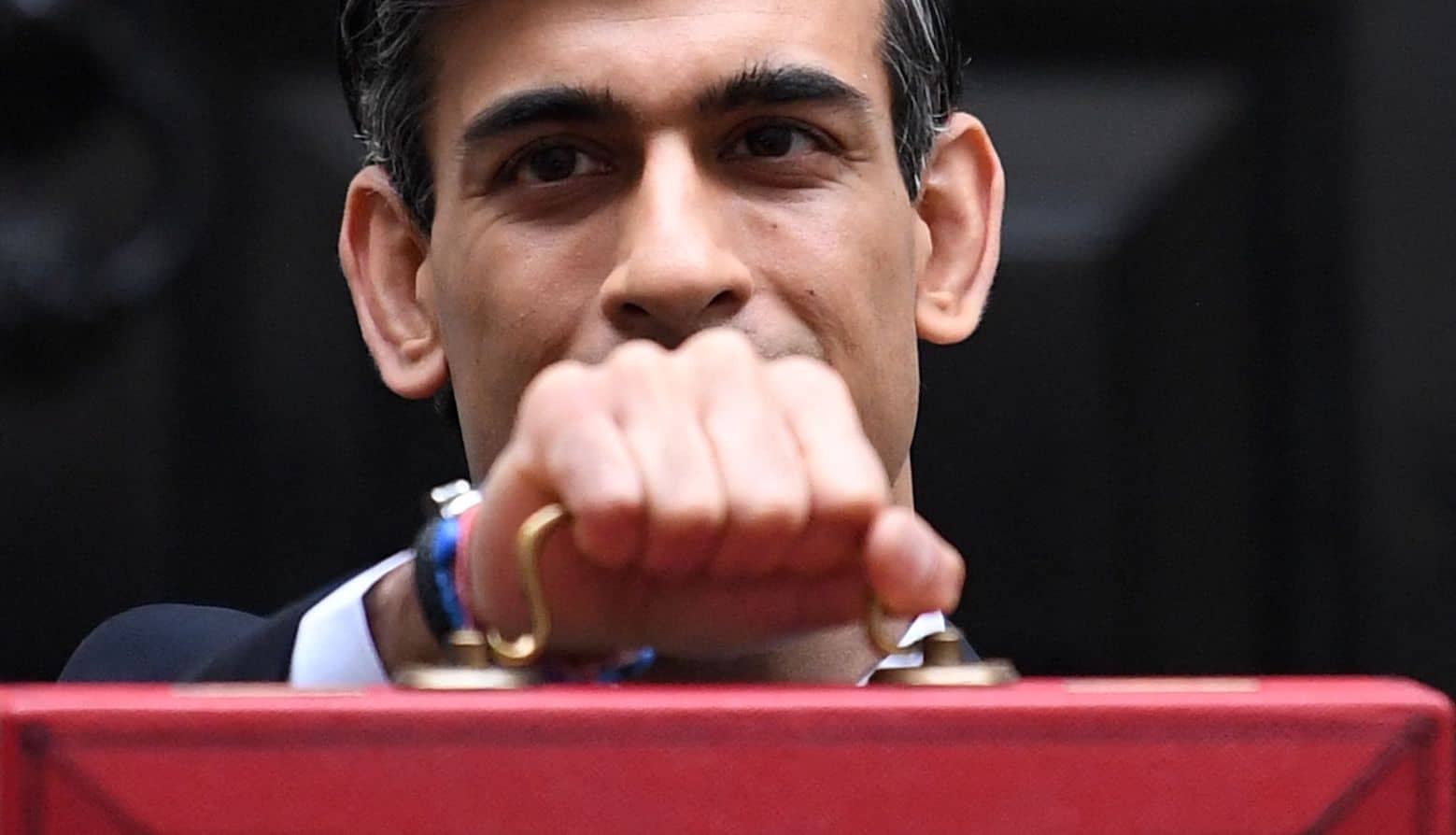Rishi Sunak has had a few quiet weeks after an explosive one, in which the Chancellor had to deal with an avalanche of questions concerning his wife’s tax status and a partygate fine. But Sunak was back this week talking policy. And his most recent contribution is unexpected to say the least.
In an interview with Mumsnet, the Chancellor indicated that he might start considering a windfall tax on oil and gas companies if they didn’t invest more profits back into their businesses to ‘support the economy’ and improve productivity. ‘If we don’t see that type of investment coming forward, if companies aren’t going to make investments in our energy security, of course that’s something I’d look at,’ the Chancellor said.
But it’s not at all obvious from Sunak’s previous comments that he would ‘of course’ consider an extra tax on businesses which, due to economic circumstances, have seen their profits spike. In an interview with The Spectator in 2020, Sunak more or less ruled out the idea of the one-off ‘wealth tax’ being floated by the academic left at the time. He agreed it wouldn’t be the right thing to do, ‘in the sense that we’re a party that believes in aspiration’.
The most damaging thing Sunak may do by flirting with a windfall tax is to embolden the Labour party
Albeit a wealth tax would be on personal assets, a windfall tax on company profits. But the principle behind both taxes is the same: an attempt to justify a tax raid because the government is looking for money and running out of sofa cushions to find change behind. Furthermore, the Chancellor made a personal pledge to Tory MPs after last year’s autumn Budget that the hike in National Insurance would be the last they’d hear of tax hikes for a while, promising every ‘marginal pound’ from hereafter would go to cutting taxes.
Perhaps the Chancellor might argue that his pledge was for individuals, not companies – but could he be sure his fellow MPs would agree with this interpretation? And even before this pledge, the idea of a windfall tax might be one of the last things you’d expect to find in a Sunak manifesto. This is a Chancellor who has boasted his free-market credentials, and his support for rolling back burdens on business, from the start of his government career.
I suspect the answer lies in the closest thing we’ve actually had to a Sunak manifesto so far: his Mais lecture back in February, in which Sunak laid out his vision for the post-Covid economy and detailed his plans for crafting a ‘culture of enterprise’. On the whole, it was a low-tax, market-oriented agenda. But the Chancellor made his thoughts on investment clear: in order for businesses and individuals to thrive without government interference, he thinks, we must see ‘greater levels of capital investment by our businesses’. It’s the slowdown in recent decades that worries him.
Even in the decade before the global financial crisis,’ the Chancellor told Bayes Business School, ‘capital deepening grew UK productivity by… less than half the OECD average. Why is investment so low? My analysis is clear: the problem is no longer the government; businesses simply aren’t investing enough.
Since Sunak seems unconvinced that the UK’s productivity puzzle can be solved without more business investment, his hint at a U-turn on windfall taxes is more likely a bid to encourage businesses to reallocate their profits into investment, rather than a serious plan to consider a one-off tax raid on profitable industries.
That said, a windfall tax is a bad idea, regardless of which party proposes them or the reasons behind discussing it. The money that Labour expects this tax would raise is a drop in the ocean of the UK’s current spending right now – roughly £1 billion to £3 billion – and could cause huge damage, not least by driving investment out of the UK (precisely what the Chancellor wants to avoid). Even more crucially, it compromises the important principle that money belongs to individuals and private bodies. It is not the right of the state to come along and claim it at any time it so chooses; and certainly not because it thinks someone, or some company, has done ‘a bit too well’.
But in the short-term, the most damaging thing Sunak may do by flirting with a windfall tax is to embolden the Labour party to double down on the idea, and give it credibility, that it is a serious solution to the cost-of-living crisis being felt acutely across the country. We’re going to need far more remarkable ideas to get the current crunch under control.








Comments